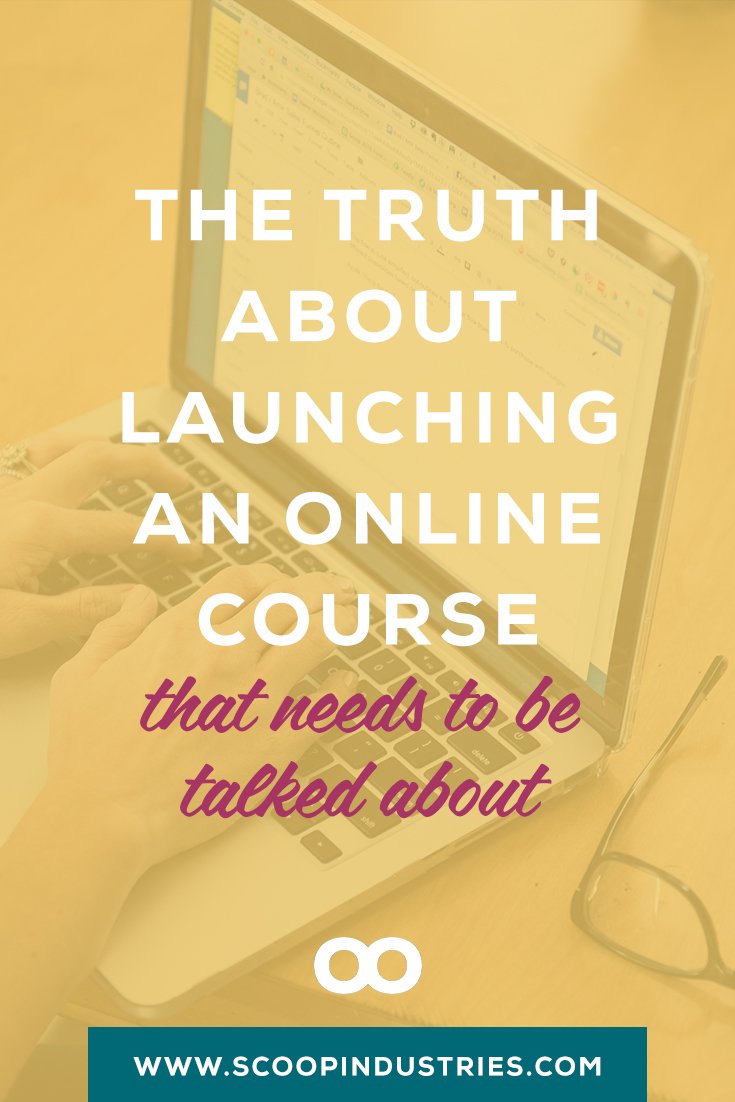
Everywhere I’ve turned lately, there have been people touting courses as the way to “get known” and build your business.
It’s definitely given me some serious food for thought, as while some people are able to cut right to the chase with their online business and build a profitable online course, that’s not the reality for most people.
Over the last four years, I’ve worked on many, many successful course and program launches, and if there’s one thing I’ve learned, it’s that the foundation for more “passive” ways of getting paid doesn’t start with coming up with an idea.
It’s time to cut through the buzz and get real about what it takes to have a successful course. Let’s quickly review some of the claims floating around about courses:
You don’t need a big list to launch a successful course
A successful course can help you build your 1:1 services
Stop trading time for dollars and create a course
The list goes on and on. And please know, this is not meant to be an attack on anyone who has a course about courses. I greatly respect these course creators and teachers as would-be course creators need to learn the ins and outs of creating their own courses.
But, and this is a big BUT, there needs to be some real discussion about how the majority of businesses come to launch successful courses, and not these magical rainbow unicorns that have a four leaf clover and make a pot of gold.
The real appeal of a course is the ability to teach many people at once and scale your business. And as a course creator myself, I totally get that, but there’s a few things missing from the discussion about the reality of building and launching a successful course.
Here’s a rundown on what you need to consider before you go down the road to launching a course:
1. There’s Nothing Passive About a Course
Creating, packaging, marketing and launching a course is a massive undertaking. There’s not a single thing about it that’s passive.
Before you chase the idea of passive income, it’s critical that you look at how much time it’s going to take to create your content, package it, market it and then actually fill your course up.
I’ve watched way too many people pour countless hours of blood, sweat and tears into their course and not do the math.
If you spend 100 hours on everything related to your course and you only make $5000 on your launch, how does that work out for you? You were making $50 an hour, and that’s not even getting into the cost of running the course or hard costs like copywriters, designers or any other help you need.
Sure, you can run the course again, but how many times do you need to launch it to get to critical mass and make it truly profitable and passive?
A course is not a silver bullet to passive income. You need to do the math to figure out if it’s really worth it based on where you are in your business today.
2. Scale and Reach is a Real Issue
If you’re just starting out online, you may struggle to reach enough people to make your course viable. Especially if you’re in the online marketing world or selling a course that’s B2B with no shortage of competitors.
There’s an argument that if there’s competition, it’s a good thing as it validates real market need, but that really only goes so far. You’re going to need to bring your A game to cut through the noise and get noticed.
Yes, people often launch with only a small list, but here’s a secret that a lot of people don’t talk about: those people are often in a very small niche and what they’re doing is innovative and new, OR those people have a reputation and track record that makes their course a no-brainer.
Launching a course requires you to really rely on your existing email list. If you’re starting at square one, you need to take some time to build the number of contacts you have, as well as to warm them up. Very few people buy courses completely cold, so you need to take time to nurture your list so they can know, like and trust you.
3. Mastery of Your Topic Matters
The expert economy is one tricky place. There’s this idea that you can teach people if you’re only a couple steps ahead of them, but there’s a distinction that needs to be made.
Mastery of your chosen area of expertise and course topic matters, and mastery doesn’t come from having done something once in your own business and deciding that you can teach it. That, my friends, may be a fluke or a lucky break, and is a surefire way to end up in over your head when teaching your course.
To gain mastery of your material, you need to implement it over and over and over again – and do it in other people’s businesses. To see different scenarios, market forces and outcomes at play. It’s only then that you can refine your material and be a real expert.
This is why there’s so much to be said for working with people one-on-one to hone your craft and to put in your hours. It’s not sexy and you’ll be accused of “trading time for dollars” but this is where you’re going to be able to build your results and your reputation for delivering the goods.
Creating a course should start with mastering the running of your services-based business first, and then you can add courses or other leveraged income streams over time.
Your online business is really about evolving as you move through the various stages of your business and not trying to find a way to shortcut your road to success. Shortcuts, more often than not, result in you wasting time and energy on your journey, and ending up lost.
If you’re thinking of a course, think long and hard about where you’re really at in your business today and plan accordingly. You likely will be more profitable and sane if you take the time and care to put the building blocks in place first.
Speaking of building blocks, Maggie and I are sharing some of the essentials of running an online business in our new training. In this one hour case study, we take you behind-the-scenes of our business and we do get into our course vs. services offering as part of this. Just click on the image below to get signed up and have the training delivered to your inbox right away.
An online course may be an option for you, but make sure you do your homework first. Trust me, you’ll be glad you did.
[embed_popupally_pro popup_id=”9″]

